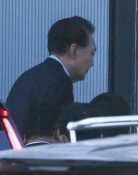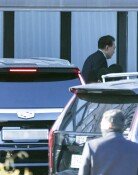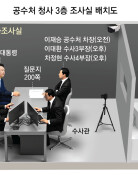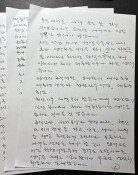Constitutional Court dismisses Yoon’s request for objection
Constitutional Court dismisses Yoon’s request for objection
Posted January. 15, 2025 08:20,
Updated January. 15, 2025 08:20
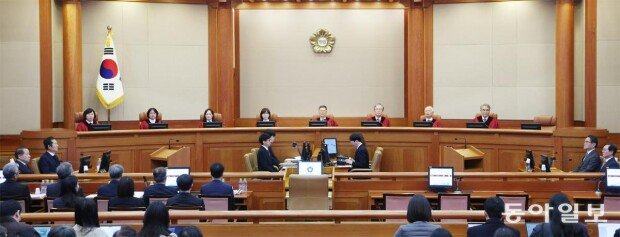
The first official impeachment trial hearing of President Yoon Suk Yeol commenced on Tuesday but was adjourned within three minutes due to Yoon's absence. The Constitutional Court announced that arguments on key issues, such as the constitutionality of the December 3 martial law declaration, will take place during the second hearing, scheduled at 2 p.m. on Thursday.
Moon Hyung-bae, acting head of the Constitutional Court, presided over the hearing and cited Article 52(1) of the Constitutional Court Act as the basis for adjourning the session. "Because the respondent did not attend, we will not proceed with the trial pursuant to the provision,” Moon stated. He further clarified that the trial would proceed as planned in subsequent hearings, even if the parties concerned were absent.
Under Article 52(1) of the Constitutional Court Act, a new date for oral argument must be set if a party fails to attend the designated session. The hearing was attended by the National Assembly's impeachment committee and its defense counsels, along with President Yoon’s legal team. Yoon did not appear, citing concerns for his safety due to the Corruption Investigation Office for High-ranking Officials’ ongoing attempt to execute an arrest warrant.
President Yoon’s defense team filed a motion to recuse Justice Jeong Gye-seon, alleging potential bias due to her husband's position at the GongGam Human Rights Law Foundation. The foundation’s director-general, former Constitutional Court Justice Kim Yi-su, is also co-representing the National Assembly’s impeachment committee. The defense argued that this connection could undermine the fairness of the trial. The Constitutional Court unanimously rejected the request, with all seven Justices, excluding Jeong, agreeing to dismiss the motion. While no specific reasons were provided for the dismissal, legal experts have suggested that the motion lacked substantive grounds and was likely a delaying tactic.
Yoon’s defense team also objected to the pre-scheduling of five hearing dates, arguing that it violated the Regulations of Criminal Procedure. However, the Constitutional Court refuted this claim, stating that its decisions are governed by Article 30(2) of the Constitutional Court Act and Article 21(1) of the Regulations of Constitutional Court Adjudication, not the Regulations of Criminal Procedure, which apply to criminal courts.
????? zion37@donga.com



